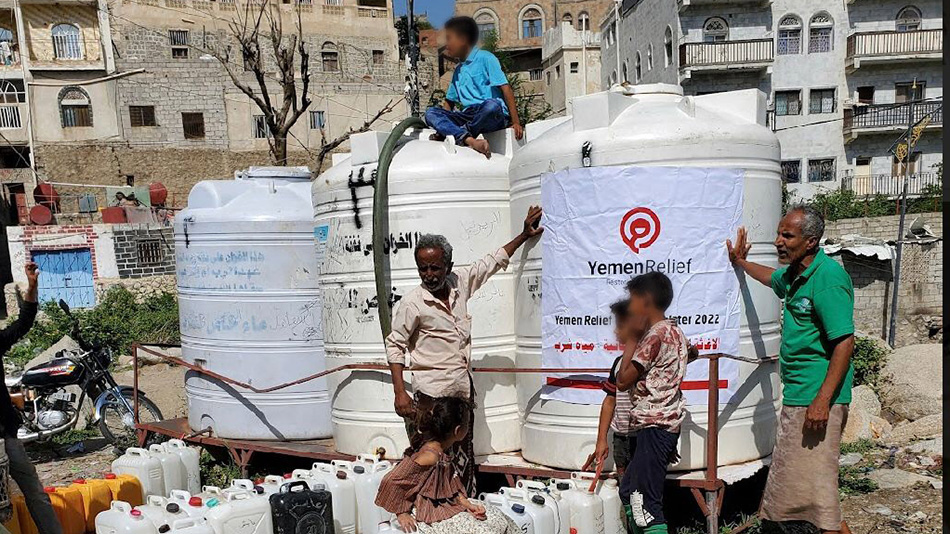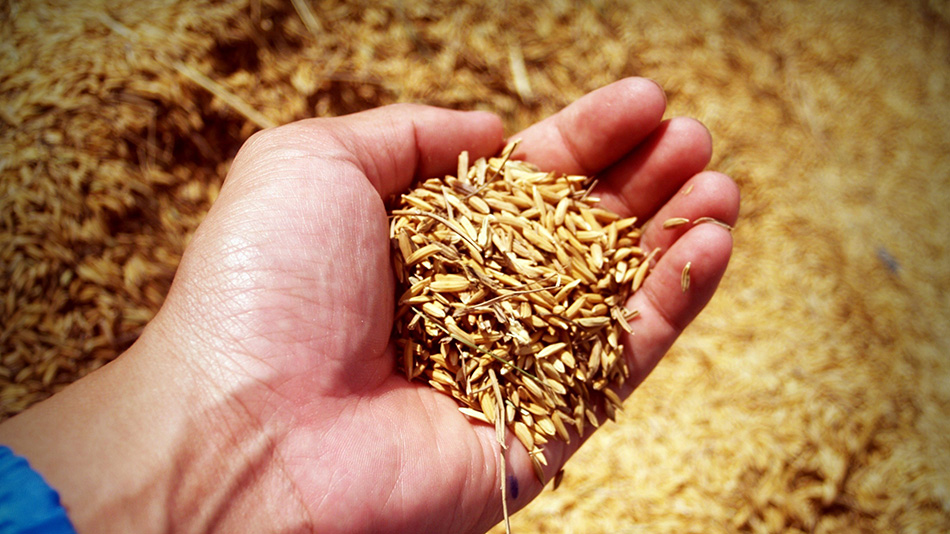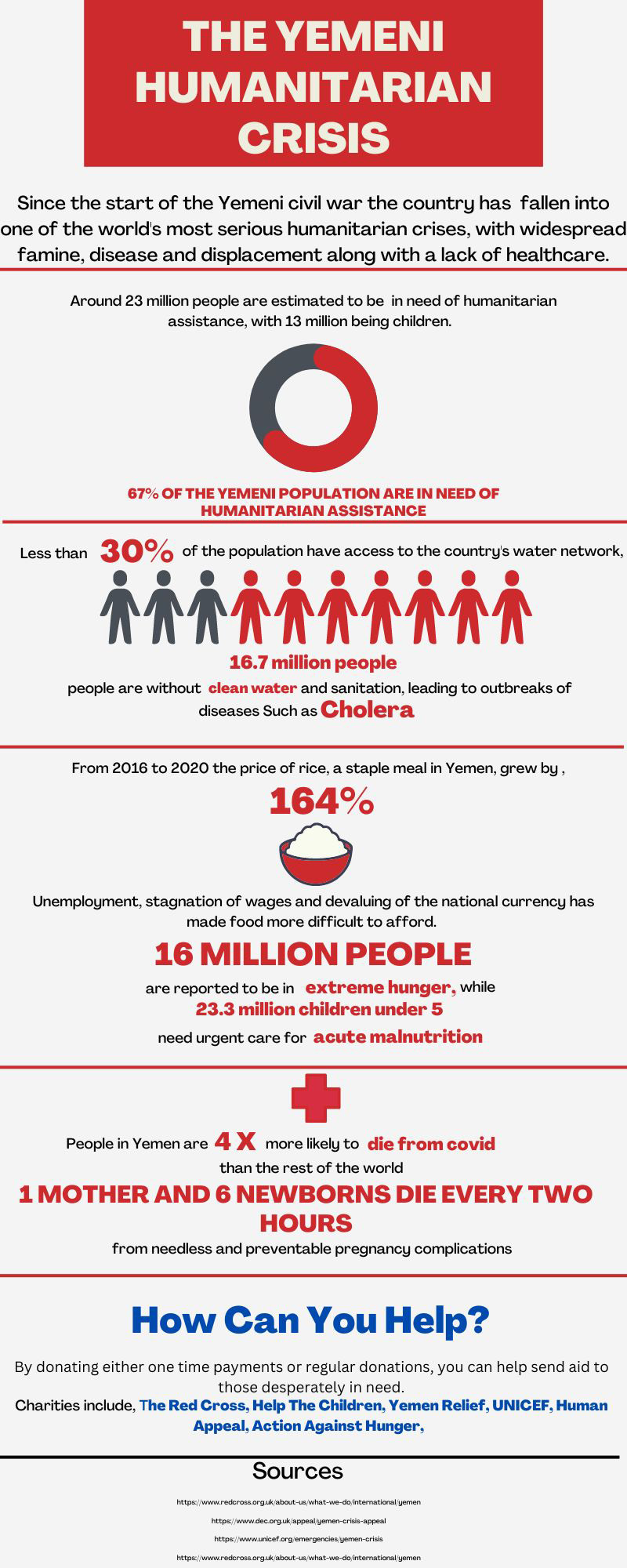As people around the country struggle to pay for essentials, some members of the Welsh-Yemeni community struggle to support family in war-torn Yemen. But how are price increases and war impacting on their identity?
In 2018, Khaled Alshameri was making his trip from Cardiff to see his family in his home of Yemen. Sitting in Cairo airport, Khaled’s flight had a three-hour delay. What may have sounded frustrating was simply a small bit of added time compared to the four-day long trip home. Likewise, sitting in an airport was far more comfortable than the series of military checkpoints he would soon be navigating through. He was finally visiting his country after eight years abroad. However, ‘home’ was now in the midst of a warzone.
The Yemeni civil war began in 2015 and still ravages the country today. The conflict has made travelling to and from Yemen a dangerous, expensive and exhausting challenge for British-Yemenis and their families. “Being away from the family for years, cannot see them or they cannot travel to you, this is emotional enough, you know, this is putting a lot of pressure on ourselves,” says Khaled.
Yemen’s civil war began in 2014, between government forces, backed by a Saudi and Emirate coalition, and Shia rebel forces, known as The Houthi Movement. in 2021 the UN estimated the number of deaths to reach over 377,000 people, 70% of those were children with most deaths associated with indirect causes such as hunger and disease. The conflict has reportedly caused Yemen, which is the poorest country in the Arabian Peninsula, to stand on the brink of famine.

The war has caused massive inflation and destruction of infrastructure in Yemen. This has caused many to rely on financial support from relatives abroad says Khaled, “Most of those people they rely on us… who live in Europe or in Saudi Arabia.” Khaled, himself occasionally supports family members in Yemen when he has extra savings.
However, Khaled says the cost-of-living crisis in the UK has meant Welsh-Yemenis, now facing rises in energy bills and food in Britain, are struggling to gather funds to support family members in Yemen.
“After all the bills, after supporting your family here, it’s really hard to send anything to Yemen. So, the situation now in the UK, the economic climate, is making it really hard for us as Yemenis to support our families back home,” says Khaled.
As families struggle to pay necessities in Britain, Khaled feels that those supporting loved ones in Yemen will have to start making difficult decisions. “The only option they’re [Welsh-Yemenis] going to have at the end is just to look after themselves here, to let them [family members in Yemen] down, there is nothing we [British Yemenis] can do,” says Khaled. “If you can’t you feed yourself or your family here, you’re not going to send money back home,” he says.

While many prefer to send cash directly to family through Western Union transfers, some dedicate time to raising funds via charity organisations. Ali Saif, a Yemeni teacher living in Cardiff, is a co-founder and volunteer for Yemen Relief who deliver aid to war-torn areas all over the country. “We started, me and my colleagues, we said to ourselves, why not try to do something, you know, to help these people, especially when you see children dying of hunger,” says Ali.
Ali travels back to Yemen with the charity delivering aid, however even raising money for organised charities has become challenging, “people no longer donate because, you know, they need the money. Basically, they need every penny,” he says. “Imagine when you have the bills doubled, the food prices doubled, everything doubled then obviously, you would be preoccupied very much with yourself. Unfortunately, that’s what’s happening.”
However, Ali says price rises have not only affected the amount of donations to Yemen Relief, but also the charity’s capacity to deliver aid. He believes the war in Ukraine has a large part to play.
“If you do a 100 food baskets project, it only costs £2500 It used to, now it’s 30 [£3000], because of the Ukraine war, because of the oil going up, transportation is more and also the flour,” says Ali.
The UN has feared that since the start of the Ukraine conflict in February, the crisis in Yemen has been overshadowed, with the UN’s World Food Programme only reaching $1.3bn of its $4.1bn donated by nation states, the war in Ukraine will only add new challenges. Yemen imports almost 90% of its food, with a huge amount of grain coming from Ukraine. However, since the Russian invasion it has proven difficult to export the much-needed grain, while global food prices continue to rise.

However, it is not only charities centred towards war-torn countries such as Ukraine and Yemen that are feeling the pressure of the cost-of-living crisis. The Charities Aid Foundation reports that 58% of people in the UK, asked in February, planned to cut back on discretionary donations over a six-month period in order to pay their bills.
Dr Abdul Azim Ahmed Is the secretary general of the Muslim Council of Wales (MCW) and deputy director for The Centre for the Study of Islam in the UK, at Cardiff University. He says that while people are still donating, the crisis has had an impact. “It’s not changed in practice, people are still giving,” he says. “What is changing is quantity, how much people can afford, it has definitely made an impact, charities are noticing it and speaking about it.”
We are slowly losing our identity here,
Khaled Alshameri
According to Azim, assistance is becoming increasingly concentrated locally rather than internationally, “the trend has been a lot of these charities which operate in the Muslim community… they’re noticing… there’s more and more demand locally for some of the relief work,” says Azim.
He says that religious communities are also starting to look at the issues in their immediate vicinities. “Before they were focusing internationally, but now it’s looking locally, in mosques… they’re part of a network of faith groups, which offer food banks, but also looking at the fact that homelessness is on the increase, people can’t afford to live.”
Azim sees this a double-edged sword: while the economic situation has forced communities to withhold from sending money internationally, he believes it does create a sense of belonging and a need to care for those within the local community.

Ali feels that economic hardships, here in the UK, among the Welsh-Yemeni community prevent them from being able to do more in terms of donating money to Yemen: “I think it’s because probably, they’ve been through a hard life, and therefore, probably, they will say, ‘Oh, better for my children rather than give it out,” he says.
Most of the donations Yemen Relief receive are from outside the Yemeni community, Ali says. And while financial deprivation may prevent the Welsh-Yemeni community from donating, he feels that the responsibility to act falls on the Yemeni government, however he doesn’t hold high hopes for a solution: “I think the politicians themselves in Yemen…they’re so corrupt.”
They make sure kids have the opportunity to go back to Yemen, to be with family, to learn the language and that connection has been lost.
Dr Abdul Azim Ahmed
The corruption watchdog Transparency International ranked Yemen, fourth from the bottom at 174th out of 180 in its 2021 corruption perceptions index, ranking the country lower than North Korea and Afghanistan.
Returning to Yemen, which is now seven years into its devastating civil war, is often an expensive during a cost-of-living crisis for Yemenis living abroad. Specifically, Ali highlights what he sees as a ‘monopoly’ being created between Yemen’s flagship airline, Yemenia, and the Yemeni government, which has caused the price of an airline ticket to rise substantially, with flights operating at a limited capacity from only one city, Cairo. Khaled, who made the journey in 2018, feels that the insurance prices included in the ticket, due to the added risk, has made them more expensive.
The cost and danger in taking family back to Yemen has created a significant problem with possible long-lasting effects for Khaled and other members of the Yemeni community: “because what’s going on in Yemen, we couldn’t take our children back there and get them to know the culture, get them to know the relatives there, so, we are slowly losing our identity here,” Khaled says. He feels being unable to visit Yemen has serious consequences in Britain: “You lose that connection, then you cannot call it community anymore.”
The lack of opportunity to return to Yemen means British-Yemenis fear the younger generation may lose touch with their Arabic routes, “my children, the eldest one is 11 years old now and he doesn’t know his grandmother or grandfather or his uncle’s, he’s never seen them in his life.” Says Khaled.
Ali, who travels back on aid trips, also sees the difficulties in returning on family visits: “It’s one of those obstacles that the Yemeni community also find, that whereas before they would travel there and enjoy themselves for holidays,” Ali says. “Now, they are no longer able to do that in anticipation that it might be risky.”
Azim, of the MCW, believes that British-Yemenis have had large success at maintaining these ties with Yemen, however he too sees these efforts at risk: “One of the things you notice about the Yemeni community is no matter how many generations down they are, they have wonderful, fluid Arabic,” Azim says. “Part of that is because they make sure kids have the opportunity to go back to Yemen, to be with family, to learn the language and that connection has been lost.”

The war, though far away in the Arabic peninsula, continues to also bring an emotional toll to some of the Yemeni population here in Wales, including Khaled: “It’s enough pressure when you see your own country struggling, enough pressure when you see the ads on YouTube every time you want to watch something,” he says. “You have to go through all that pain, you have to see all those children crying, this is I think, [is] enough pain.”
Khaled’s hopes for Yemen do not look optimistic, “When you see the horizon, it looks like black, you know, you can’t see nothing giving hope in the future.”
Yemen’s struggle continues as it faces war, famine, inflation, and the effects of war in Europe, while countries such as Britain have been seen provide resources to the Saudi military campaign. These obstacles make many, like Ali, also feel that Yemen’s prospects for the near future are quite slim, he says, “I just sometimes think that the whole world is against Yemen. I don’t know why.”
Despite the challenges that are faced in Yemen and locally with the cost-of-living crisis, many members of the community in Wales continue to try and make a difference. Ali continues to help send aid to wherever he can reach with Yemen Relief, though he acknowledges the obstacles on the way. Khaled also knows the challenges for the country all too well but takes action through public demonstrations and raising awareness.
Khaled sees that these small actions are the only way forward, “if we everybody, just keep quiet and just watch silently, nothing will change in the world, either in Yemen or any different parts of the world,” he says.
